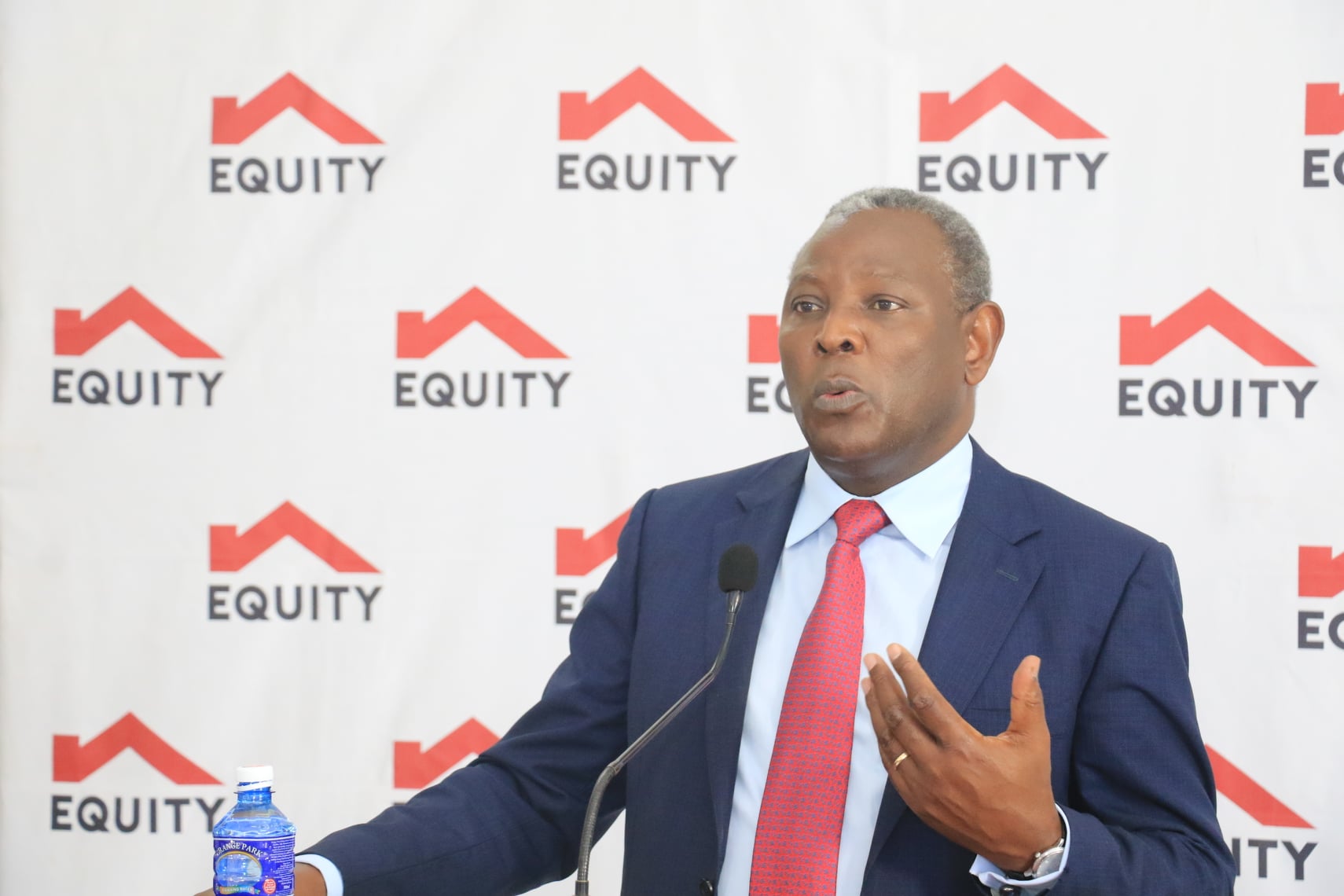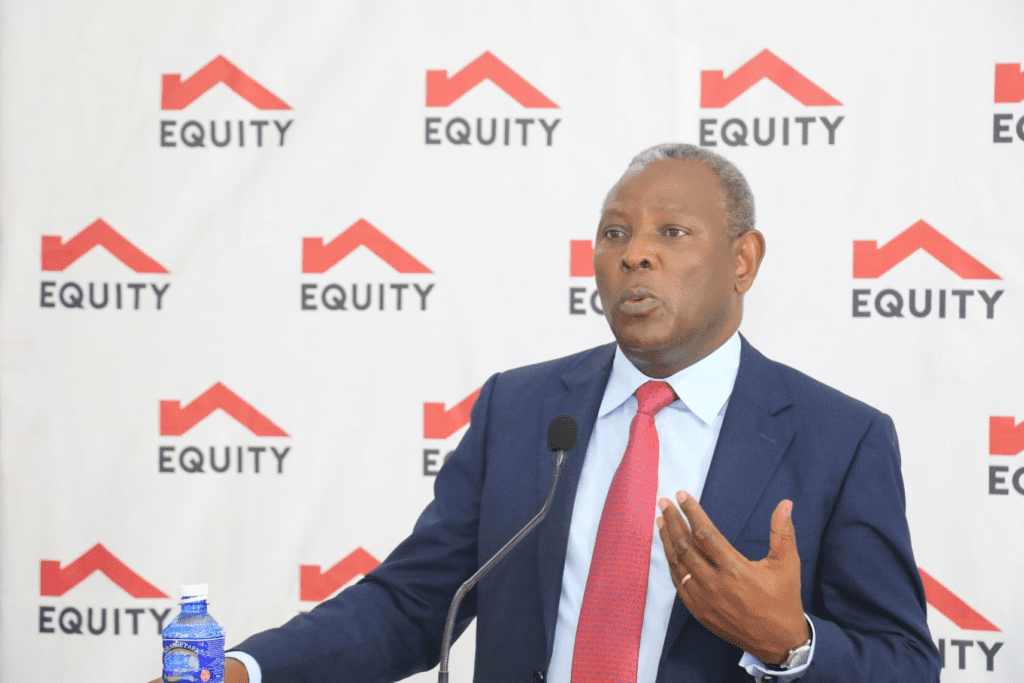
James Mwangi and Financial Inclusion: How Equity Bank is Transforming Rural Kenya

James Mwangi’s vision for financial inclusion has driven Equity Bank to become one of Kenya’s leading financial institutions, particularly in rural areas where traditional banking was once inaccessible. Under Mwangi’s leadership, Equity Bank has transformed Kenya’s financial landscape, empowering small businesses, supporting local economies, and improving the lives of millions. This article explores the bank’s journey, its impact on rural economies, and the inspiring stories of businesses that have flourished thanks to financial inclusion.
1. Equity Bank’s Journey Under James Mwangi’s Leadership
A Vision for Inclusivity
When James Mwangi took the helm of Equity Bank, his goal was clear: to make financial services available to every Kenyan, regardless of location or income level. Since then, Equity Bank has grown into a symbol of financial empowerment, championing initiatives that prioritize rural communities and promote economic growth.
Innovative Banking Models
Mwangi introduced customer-friendly banking models designed for underserved communities. With mobile banking, agency banking, and simplified account-opening procedures, Equity Bank offers rural Kenyans easy access to financial services that once required travel to urban centers. Through these models, the bank has reached previously unbanked populations and helped bridge the financial gap between urban and rural areas.
Impact on Society:
Equity Bank’s approach has shifted the way Kenyans view banking, creating a financial culture that includes even the smallest villages, where access to capital can fuel local economic growth.
2. Financial Inclusion and Its Impact on Rural Economies
Empowering Small Businesses

Financial inclusion enables small businesses to access loans, savings accounts, and investment opportunities that were once out of reach. Equity Bank’s microloans have empowered local entrepreneurs to start and grow their businesses, creating jobs and supporting the local economy.
Promoting Economic Resilience
With access to financial services, rural communities are better equipped to manage financial risks and pursue economic opportunities. Farmers, for example, can access loans to invest in seeds, equipment, or sustainable practices, helping them grow more crops and increase their income. This economic resilience translates to improved livelihoods and greater financial security for families.
Supporting Education and Healthcare
Financial services also enable families to save for essential expenses, including education and healthcare. By providing affordable loan options and savings accounts, Equity Bank helps parents fund school fees and access healthcare services. This, in turn, contributes to social development, with more children attending school and communities benefiting from healthier, more educated residents.
3. Success Stories of Small Businesses Supported by Equity Bank’s Services
The Rise of Agripreneurs

Through its Agribusiness Loans, Equity Bank has supported farmers who aim to scale up their operations. One success story is that of a young farmer in Nakuru who used an Equity loan to purchase high-quality seeds and irrigation systems. Today, her farm produces a steady yield, supplying local markets and creating jobs in her community.
Women Empowerment through Business Loans
Equity Bank’s Women’s Program offers low-interest loans tailored to women entrepreneurs, helping them launch or expand businesses. For example, a tailoring business in Kisii started with a small loan from Equity Bank and has since grown to employ several women from the local area. This initiative not only generates income but also builds a sense of community and empowerment.
Empowering Youth in Business

Equity Bank’s programs for young entrepreneurs provide capital and financial guidance to youth-led businesses. A group of friends in Kakamega used an Equity loan to start a mobile money agency, which has become a thriving venture in their community. With continued support from Equity Bank, the business now offers additional services like bill payments and microloans, attracting a loyal customer base.
Impact on Society:
These stories highlight the transformative power of financial inclusion. By supporting small businesses, Equity Bank helps individuals realize their potential, fostering local economic growth and creating opportunities in rural areas.
4. The Role of Technology in Expanding Financial Inclusion
Mobile Banking
Equity Bank’s mobile banking platform has brought financial services directly to rural Kenyans. By offering mobile access to banking services, such as checking balances, transferring funds, and applying for loans, Equity Bank makes it easy for users to manage their finances without traveling to a bank branch.
Agency Banking Model
Through the agency banking model, Equity Bank has trained local vendors, shop owners, and small businesses to act as agents, providing banking services to community members. This model extends the bank’s reach into remote areas, where opening a full branch may not be feasible.
Digital Wallets and Savings Accounts
With digital wallets and mobile savings accounts, customers can deposit, save, and withdraw funds directly from their phones. This approach makes it easier for rural Kenyans to save money securely, without the risk associated with cash-based transactions. Equity Bank’s digital solutions simplify financial management, encourage saving habits, and provide a safe place for customers to store their earnings.
Impact on Society:
The use of technology allows Equity Bank to offer flexible, accessible financial services that meet the unique needs of rural populations. Through mobile banking and agency models, the bank has bridged the gap between urban and rural financial access.
5. Challenges and the Future of Financial Inclusion in Kenya
Overcoming Infrastructure Barriers
Despite progress, challenges remain. Infrastructure limitations, particularly in remote areas, affect the availability of financial services. Equity Bank continues to invest in technology and partnerships to overcome these barriers, aiming to provide more consistent services across Kenya.
Increasing Financial Literacy
Financial literacy remains a hurdle, especially among rural populations unfamiliar with formal banking. Equity Bank is committed to educating customers on managing finances, using banking tools, and making informed financial decisions. This literacy effort ensures that customers can maximize the benefits of financial inclusion.
Policy Support and Partnerships
Government policies and private sector partnerships play a critical role in supporting financial inclusion. Equity Bank collaborates with government programs to promote initiatives that foster financial literacy, improve digital infrastructure, and make banking services more accessible to rural areas.
Conclusion

James Mwangi’s vision and leadership have transformed Equity Bank into a catalyst for financial inclusion in Kenya, particularly in underserved rural areas. By providing accessible, technology-driven financial services, Equity Bank empowers individuals and supports small businesses, fostering a culture of economic growth and resilience. Through its continued efforts, Equity Bank is building a financially inclusive Kenya where everyone has the opportunity to thrive. Kenyan Chronicles will keep you updated on the inspiring work Equity Bank and other organizations are doing to drive progress in Kenya’s financial landscape.








